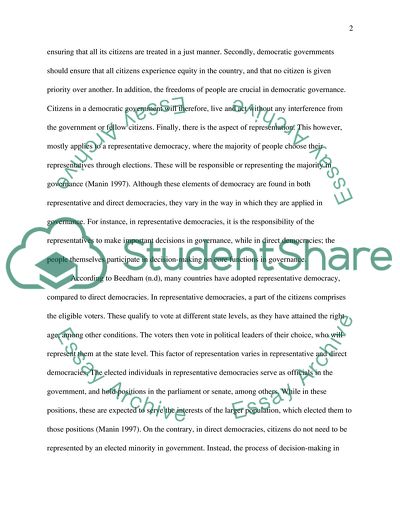Cite this document
(Direct and Representative Democracy Essay Example | Topics and Well Written Essays - 2500 words, n.d.)
Direct and Representative Democracy Essay Example | Topics and Well Written Essays - 2500 words. Retrieved from https://studentshare.org/history/1798024-4examine-some-of-the-main-differences-in-theory-and-practice-between-direct-and-representative-democracy
Direct and Representative Democracy Essay Example | Topics and Well Written Essays - 2500 words. Retrieved from https://studentshare.org/history/1798024-4examine-some-of-the-main-differences-in-theory-and-practice-between-direct-and-representative-democracy
(Direct and Representative Democracy Essay Example | Topics and Well Written Essays - 2500 Words)
Direct and Representative Democracy Essay Example | Topics and Well Written Essays - 2500 Words. https://studentshare.org/history/1798024-4examine-some-of-the-main-differences-in-theory-and-practice-between-direct-and-representative-democracy.
Direct and Representative Democracy Essay Example | Topics and Well Written Essays - 2500 Words. https://studentshare.org/history/1798024-4examine-some-of-the-main-differences-in-theory-and-practice-between-direct-and-representative-democracy.
“Direct and Representative Democracy Essay Example | Topics and Well Written Essays - 2500 Words”, n.d. https://studentshare.org/history/1798024-4examine-some-of-the-main-differences-in-theory-and-practice-between-direct-and-representative-democracy.


